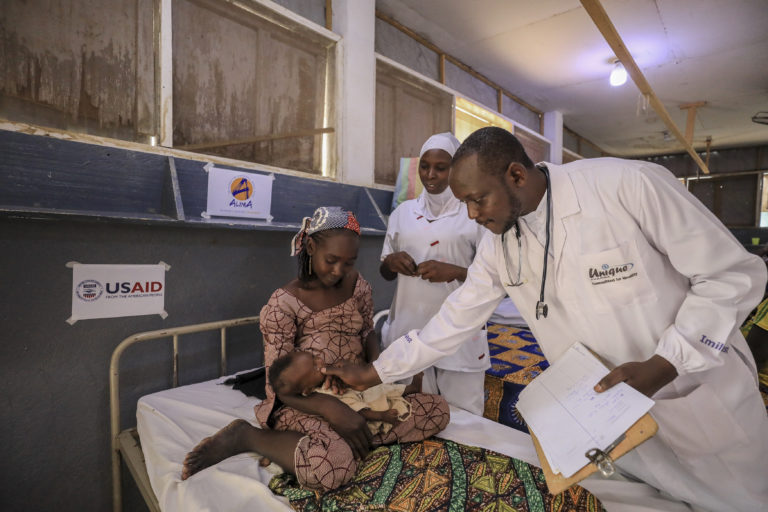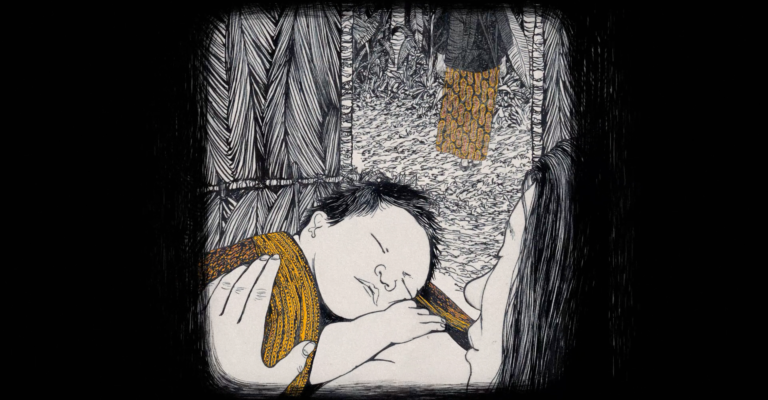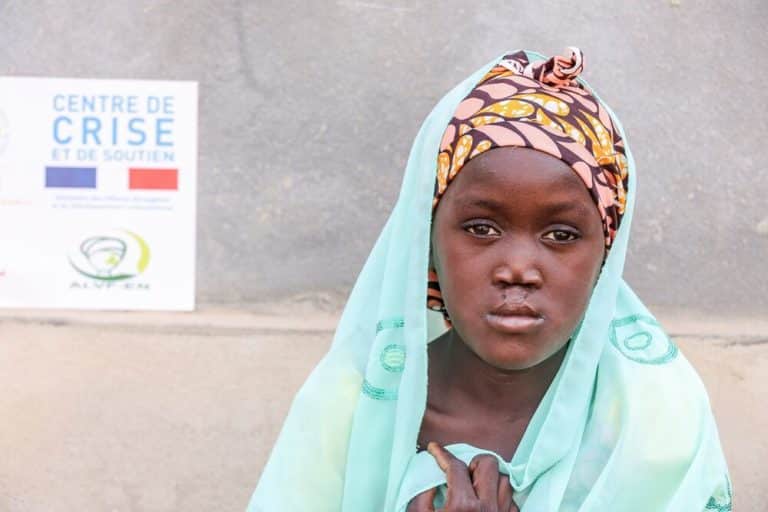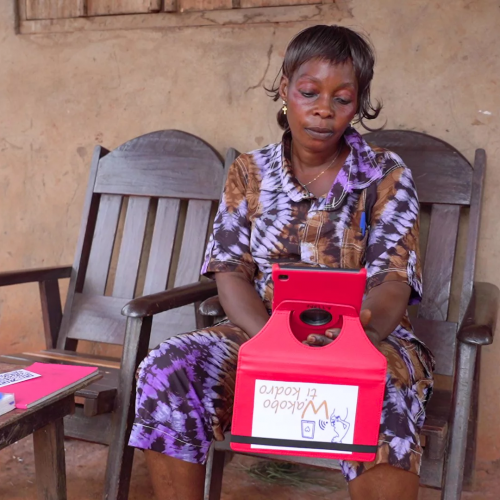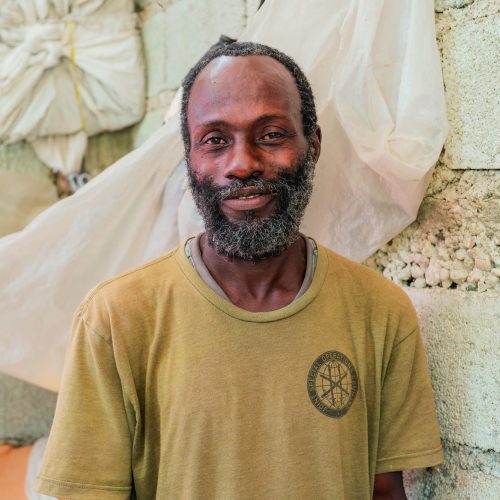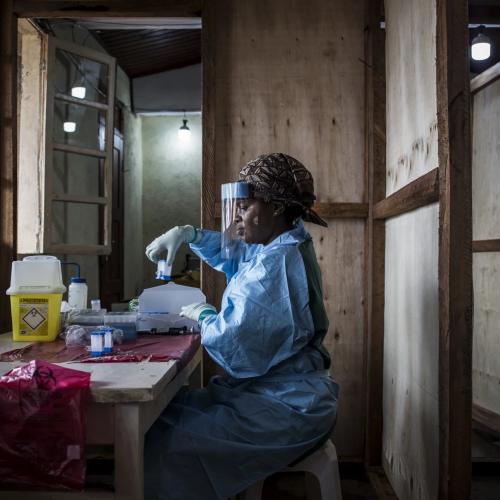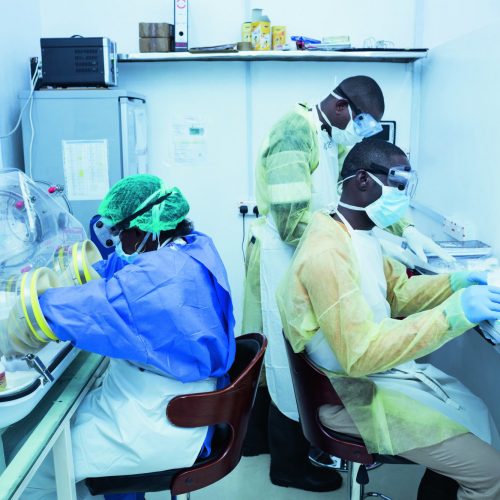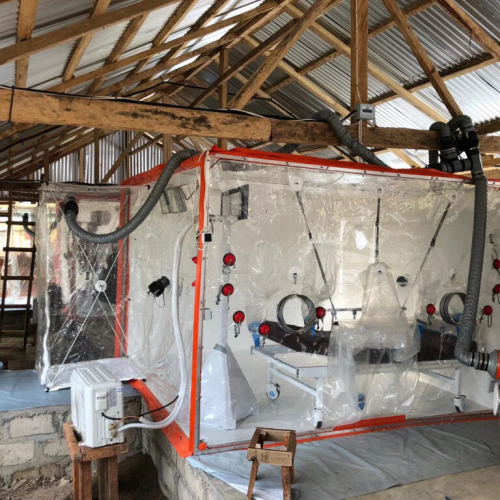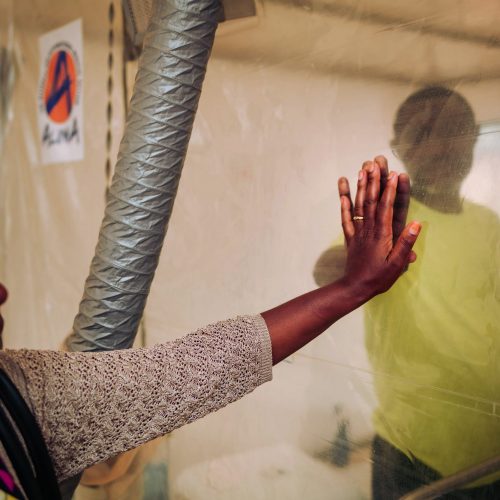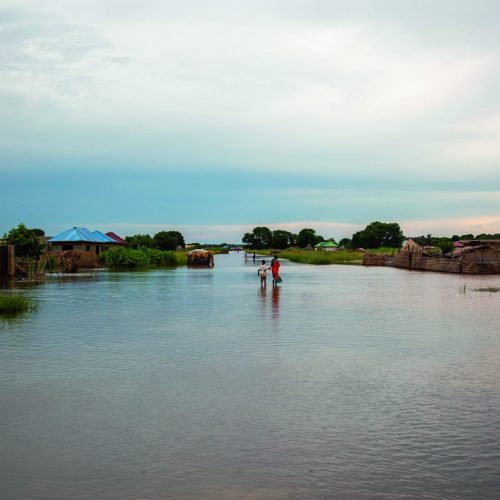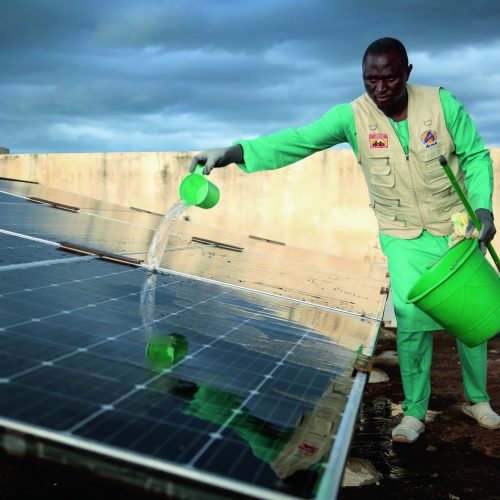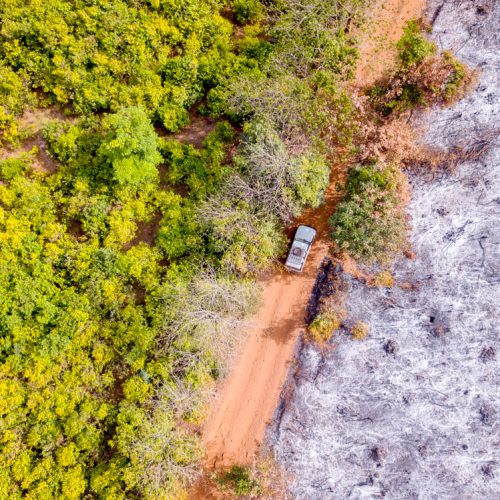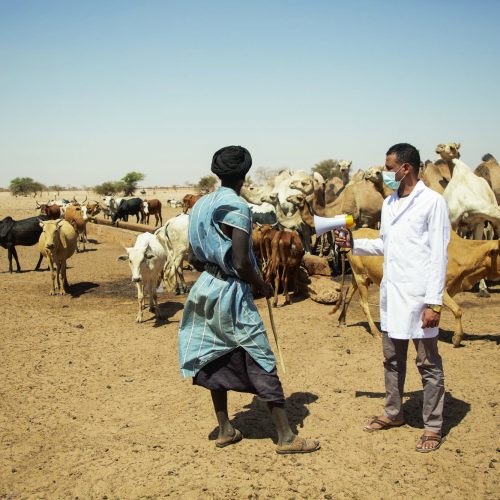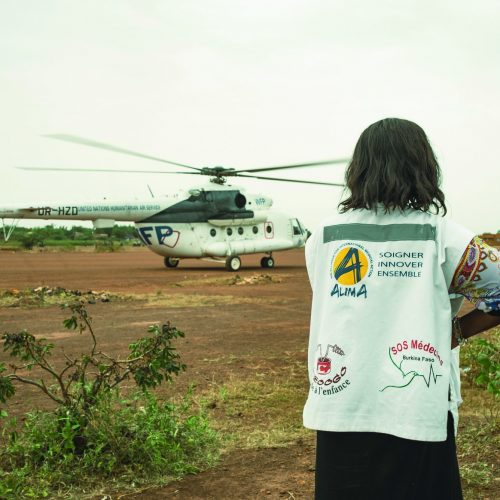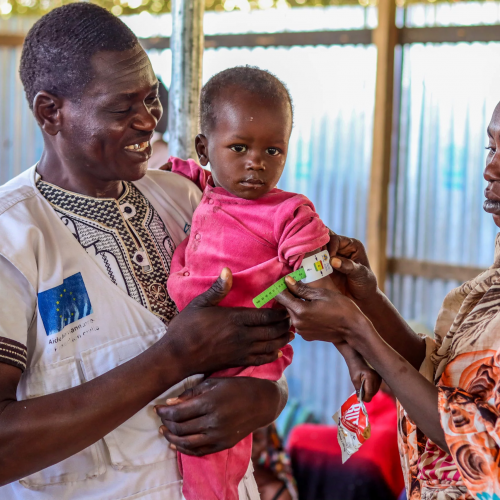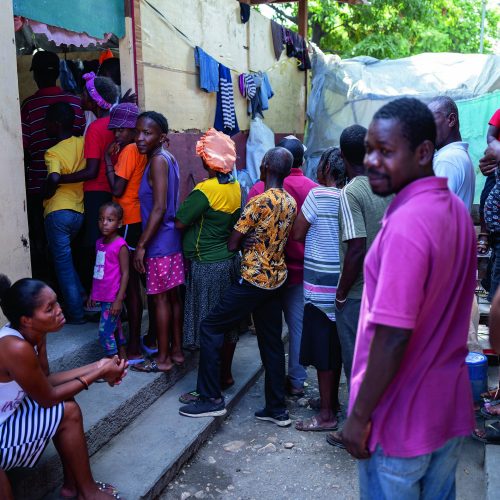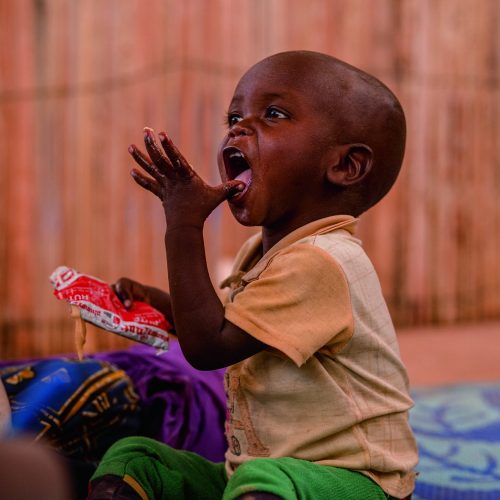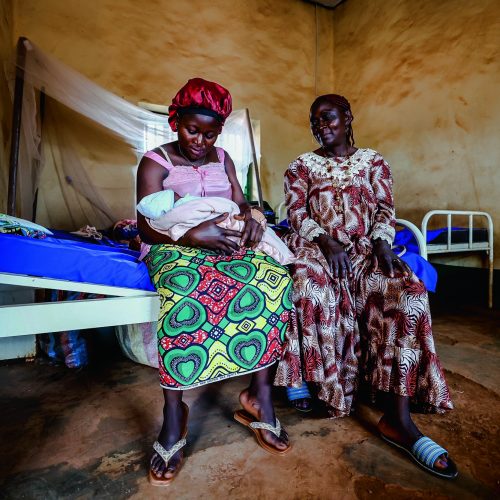Prior to discovering ALIMA, Mercy, six months pregnant, could not access healthcare. In the remote areas of the NWSW regions in Cameroon, where conflict has been raging since 2017, the absence of quality healthcare poses a significant challenge for communities. Despite the presence of private clinics, the high cost of care prevents a large part of the population from accessing services, including Mercy, who has never been able to afford them.
However, everything changed with the arrival of a community relay in her neighborhood – a member of her community whose job is to connect residents with health services.
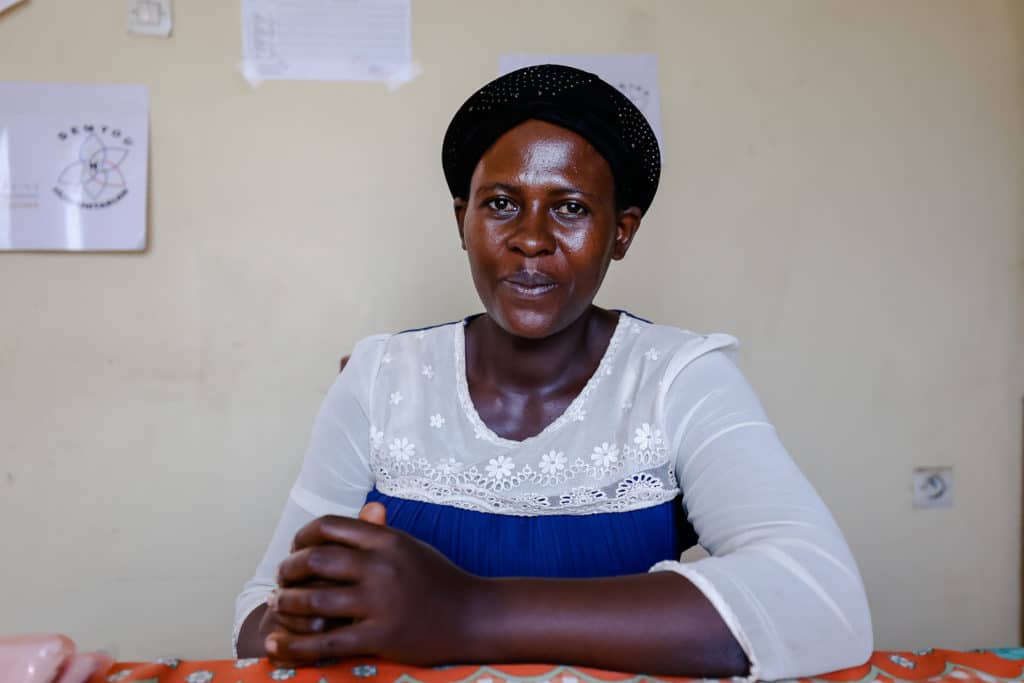
©Daniel Beloumou / ALIMA
Overcoming Obstacles: Distance and Lack of Information
“It was a true eye-opener for me and several other women in our community. We had no idea about the healthcare services available to us or the presence of ALIMA at this health center,” she says.
Communication is very often where the problem lies.
Viviane, for example, did not believe her neighbor when she told her about the free care provided at the Akum health center. “I decided to investigate, and to my surprise, everything my neighbor had told me was true,” she recounted. Similarly, when Céline, who has been a community relay for over three years, informs others about a health center where care is provided at no cost, some people do not believe her. I’ve already accompanied people to the health center because they didn’t believe me,” she says. “Once they arrived, they could check for themselves.”
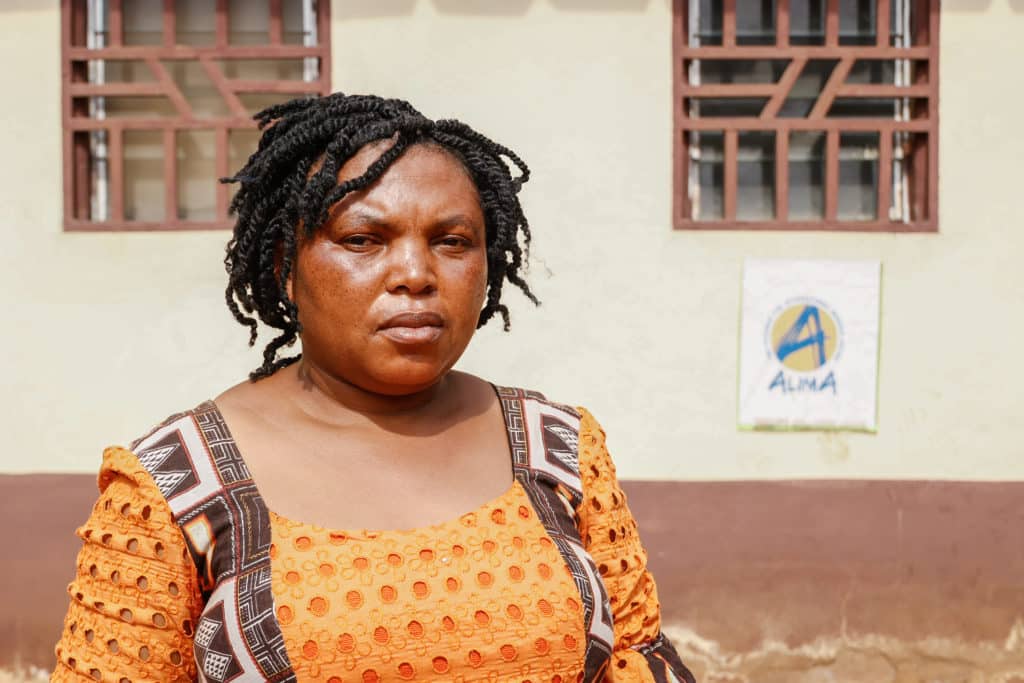
In addition to the cost of medical services, the population is often too far from healthcare facilities to seek treatment.
“The only problem I’m having right now is the distance,” Céline continues. “I do this awareness-raising work in neighborhoods far from the health centre, and people make it clear to me that they can afford to go there. Walking can sometimes take up to two hours… That’s why they don’t come,” Céline adds. Indeed, community members sometimes have to walk dozens of kilometers on foot, by motorbike or taxi to reach healthcare facilities – a significant cost for these individuals with often very limited incomes.
Community Relays: Vital Bridges Between Communities and Medical NGOs
Christabelle is another dedicated woman who encourages her community to seek appropriate and quality care at the health center. As a community relay, her job is to raise awareness, provide information, and answer questions about the services provided by ALIMA. “The area I have to cover is quite big but it doesn’t scare me because I love my job.”
To fulfil her mission in the best possible way and raise awareness among as many people as possible, Christabelle sometimes has to travel several dozen kilometers. “I have to inform and answer questions from many people, including some who live in very remote areas.”
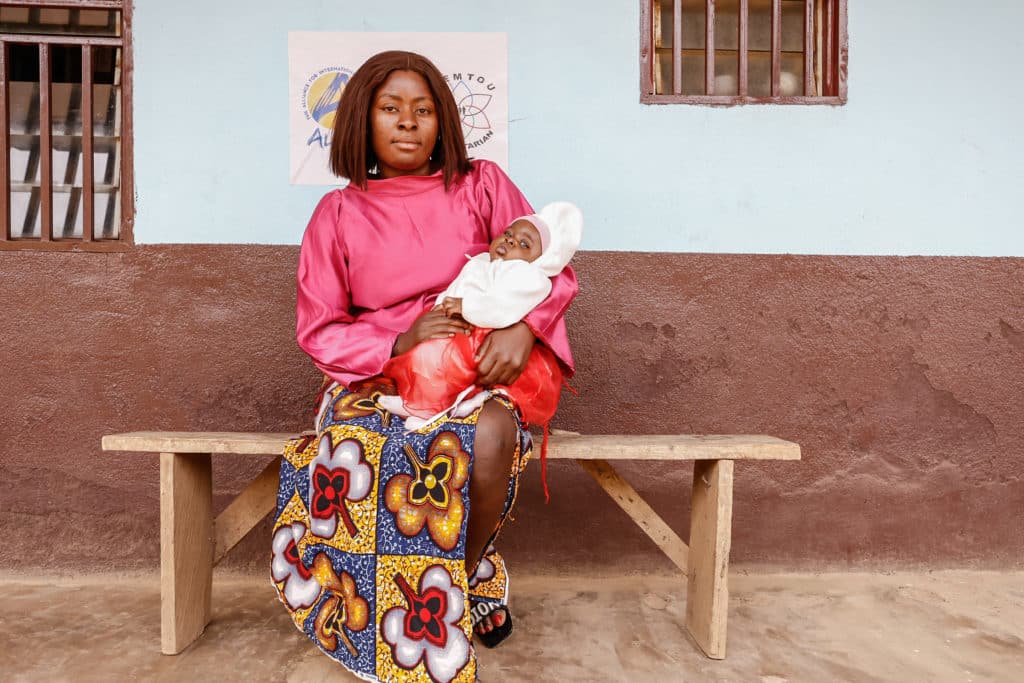
The countless kilometers she travels every day are far from discouraging Christabelle. She is very committed to her mission, and for good reason: she herself has benefited from the care provided by ALIMA. “I often share my personal experience because I have benefited from the various services provided by ALIMA, not because I am a community worker, but because I am a woman. My consultations and delivery didn’t cost me anything,” she explains.
The role of community relays is essential in bridging the gap between residents and medical NGOs. Rooted in the communities in which they work, they are listened to and respected. “I am well known by community members when I go out into the field to raise awareness, which is a good thing. People who have received care also share their experiences. That’s why my message resonates,” explains Céline. The voice of community relays is essential to gain the trust within communities and ensure that everyone has access to the free and quality care which they deserve.
Cover picture © Daniel Beloumou / ALIMA
